Wine, Cheese and a Theologian
A regular get-together in which we share perceptions of different theologians over a glass of wine (or gluhwein) with cheese and nibbles.
All are welcome.
Next Meeting
Date and Topic to be announced soon
7pm in the Brindabella Room
Format
Leader gives a brief introduction on why this theologian or thinker is important to them. For example, how has it changed their life or thinking?
Others who know the work of the theologian are asked to share their thoughts and impressions.
The leader then presents a short paper on the life, key theological thoughts and impact of the theologian.
The discussion then proceeds to the contemporary relevance of those thoughts and impact - to us in Australia, to society, to the church or to our personal lives.
Theologians that we have discussed previously
Mariann Edgar Budde, the Episcopal Bishop of Washington

Sermon by Mariann Budde at the Washington National Cathedral at which she urged the President of the US to show mercy.
Mitri Raheb and Munther Isaac, who are Palestinian theologians based in Bethlehem.


You can hear Mitri Raheb and Munther Isaac in the following podcast
The Cross, the Resurrection and Gaza
And an interview with Munther Isaac, “Gaza: Where is God? Where is the Church?”
Leonardo Boff

A video of Leonardo Boff on Contemplation and Prayer and how mysticism can heal the planet.
Walter Brueggemann

An excellent short introduction to the flavour of Walter Brueggemann’s thought can be found in his Exodus sermon.
J R Tolkien and the Lord of the Rings

Sharon Delgado, Founder and Director, Earth Justice Ministries
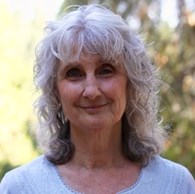
More on Sharon Delgrado can be found at https://sharondelgado.org/
Veronica Brady
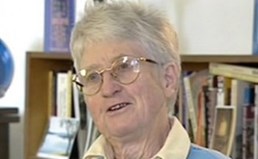
Veronica Brady was a mystic, political activist, literary academic, teacher and Catholic nun.
More on Veronica Brady can be found here.
James W Fowler
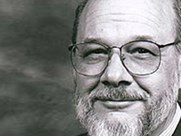
Some information about his career and work on faith development can be found here. A tribute to James W Fowler can be found here.
Bishop John Shelby Spong According to his obituary in the New York Times: “He talked about theological matters in a way that caused people who felt excluded by the church or just bored to sit up and listen.”
A video of one of his speeches can be seen here. Our church library also holds copies of many of his books.
Rev Charles Strong (1844- 1942). He became the key figure in the establishment of a new church, the Australian Church. Strong saw the task of the church to preach “freedom, justice, peace, compassion and reconciliation”. There is an article on Strong in Rex Hunt and John Smith (editors), Why weren’t we told, 2013.
Julian of Norwich (1343 - after 1416), an English mystic and anchoress. She recovered from a serious illness at age 30 after seeing a series of visions of Jesus, which she wrote about shortly afterwards, in a work now known as the Short Text. Decades later she began a theological exploration of the meaning of her visions, subsequently published on 1670 by Serenus de Cressy with the title XVI Revelations of Divine Love, shewed to a devout servant of Our Lord, called Mother Juliana. Her theology is optimistic and emphasises being loved and protected by God.
Thomas Merton (1915 1968) converted to Catholicism in his twenties and initially was a relatively conservative Catholic but became a a person concerned both with social justice and wider peace issues, and much more appreciative of other religious contemplative traditions.This rather lovely short film about Thomas Merton is worth watching.
In this tape of Thomas Merton you can hear him speaking about prayer and other matters in his own words.
Matthew Fox
Matthew Fox is a spiritual theologian, Episcopal priest and activist for gender justice and eco-justice. Read about Matthew Fox here and here.
Jacques Ellul
Click on this link for a short biography: Jacques Ellul
Jurgen Moltmann
Click on this link for more information: Jurgen Moltmann
Dr Anne Pattel-Gray is an Aboriginal woman who is a descendant of the Bidjara/ Kari Kari people in Queensland. She is recognised within Australia, nationally and internationally as an Aboriginal leader, scholar, theologian, activist and prolific writer.
Dorothee Soelle
Dorothee Soelle was a German theologian, whose theology was deeply affected by the reality of Auschwitz. She felt that after Auschwitz, theology could never be the same again. Originally, she thought of herself as writing “political theology”, but later developed a feminist/liberation theology approach. She also came to see that mysticism was integral to good theology.
Charles Birch (1918-2009) Biologist, ecologist and theologian. Charles Birch had a long association with the University of Sydney (1948-83), and finally Emeritus Professor.
In addition to his academic work, he wrote widely on theological topics including the idea that all life has intrinsic value for which he won the Templeton Prize for Religion in 1990. Charles Birch was a member of both the Club of Rome and the World Council of Churches.
Hildegarde von Bingen
List of possible theologians or thinkers for future discussion, not in any order:
Elizabeth Moltmann
Jack Caputo
Namsoon Kang
Abraham and Susannah Heschel
Catherine Keller
Daniel Berrigan
James Cone
Roberto Che Espinoza
Karl Barth
Rowan Williams
Keegan Osinski
Roberto Che Espinoza
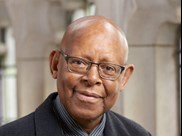 James Cone
James Cone
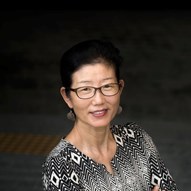 Namsoon Kang
Namsoon Kang